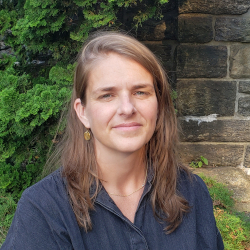
Manhattan College
“Little Empire”: Medicine, Public Health and Human Experimentation in 20th Century Central America
“Little Empire” explores how U.S. and Latin American scientists construed Guatemala as a hidden site where they could conduct human subject research without moral, ethical, or legal qualms. This project examines medical, scientific, and social scientific research throughout Central America, beginning in the late nineteenth century and continuing to the present. Yet it focuses on experiments conducted by the Pan American Sanitary Bureau in the 1940s and 1950s on sexually transmitted infections (STIs) in Guatemala. U.S. and Guatemalan doctors infected 1,308 Indigenous and other marginalized Guatemalans with three STIs—gonorrhea, syphilis, and chancroid. The Bureau doctors did not receive informed consent from Guatemalans they subjected to experimentation, nor did they provide them with available treatments. "Little Empire" explores how U.S. imperialism ignited a contact zone between U.S. and Latin American institutions, medical and public health researchers, Indigenous healers, and medical subjects who forged and contested understandings of health, the body, and ethics.